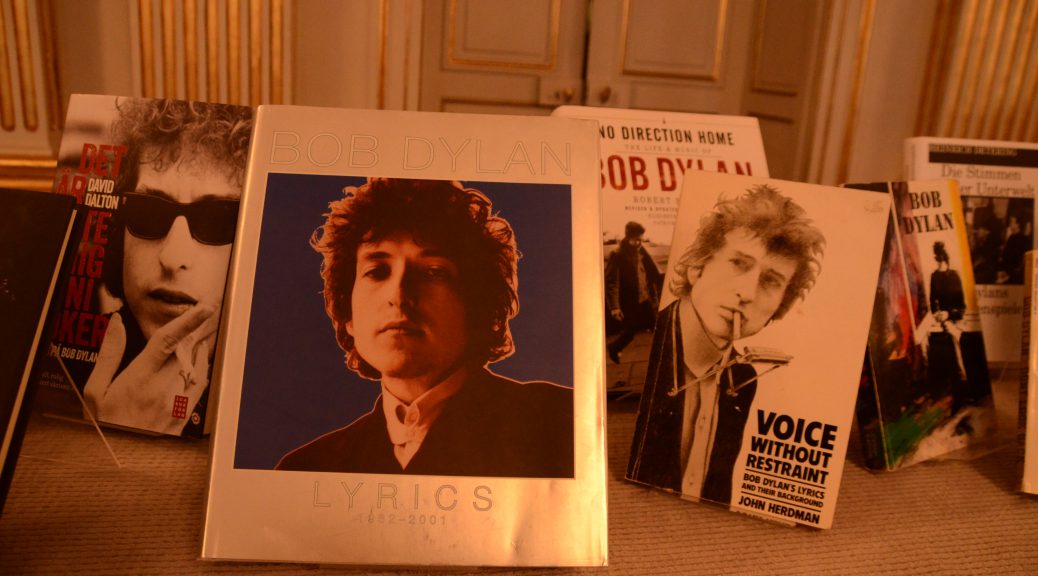金牛座和摩羯座的星座配对
金牛座:摩羯座
两情相悦指数:5
天长地久指数:4
配对指数
友情:★★★★
爱情:★★★★
婚姻:★★★★
亲情:★★★★
谈情必读:
非常默契的一对,两个土象星座的人,一个沉稳,一个谨慎,又知道对方想什么,感情不是惊天动地,高潮起伏而是细水长流,可以组成一个小康之家。
开始前,你们会有一段互相摸索的时间,当大家认定对方时,就会开始一起为将来的共同生活而实务计划,有了信心和安全感就会先组织家庭,还会很快生儿育女。
在性方面,摩羯座会受情绪压力影响,有时频频需要,有时好节制,金牛座要利用自己的能力,去舒缓他们的心理同生理问题。
他沉稳的个性的确抓得住你情绪的波动。在床上,你们亦非常契合,他不在意为你煮饭打扫,只要偶尔你也爬爬梯子换灯泡即可。
金牛座–摩羯座
坚定,可靠这些闪光的优点环绕着带有土地色彩的安全气息的金牛座牛和摩羯座山羊。生活对于金牛和摩羯来讲并不都是灰褐色的,也不都是黑色的。但在他们私人的光晕中你将很难找到乐观的黄色或红色等色彩。当这两种动物在动物园相遇时,大地会回荡起命运的震颤。谁知道当金牛和山羊共同戴起笼头时,将会取得什么样的成功呢?他们知道。
他们二者谁都很明确他(或她)要去哪里。金牛和山羊都是既谦虚又含蓄,他们都以节制作为内部的报警或保险系统,用来警告自己去除那会引起他们实现抱负的稳定机构短路的任性情感。噢,这并不是说他们是平淡,乏味、没有幽默感和想象力的苦干者。至于摩羯座人,几乎所有的山羊都有某种创造性或艺术天才。他们中的许多人像专业人员那样在工作时心不在焉地涂抹些什么,而且有些人确实成为成功的画家或作家(摩羯座的小说家就身兼二职)。至于金牛,尽管他们头脑中有全部生活常识,但他们灵魂里充满了音乐。许多金牛是著名的歌唱家、音乐家或作曲家。其他人只是随便弹弹钢琴,哼哼和声,或拨拨家里的琴。他们中几乎每个人,在确知没人能听到情况下,都会在小雨中唱歌。在幽默的场所,金牛是有独创性的滑稽家,他们总是被笑声所包围,在起居室或在工作单位,用不着别人怂恿,一般的金牛座男士或女士就会不知不觉扮演起喜剧独白的角色。
摩羯座山羊也有明显的、古怪离奇的幽默感。他们对生活喜剧的敏锐观察力机智而有趣,尽管他们通常说话时总是拉长了脸,但那只能使他们更可笑。当有些事真正使他们感兴趣时,他们就能编造出滑稽怪诞的幽默故事,那些故事会使职业喜剧作家也自叹不如,所以你看,金牛与山羊的联合能够既温暖、愉快,又稳固、长久和牢不可破。
他们生于消极的土地宫,它没有为他们提供滋生轻浮的沃土。山羊与金牛是有趣的,但他们并不胡闹,当他们开玩笑时他们丝毫也不丧失尊严。在下乖的迪斯科酒吧里,你找不到几个疯狂跳舞者是这两个星座的。他们更多的是坐在家里看别人国家园度假的电影,以此度过优美恬静的夜晚。
因为山羊与金牛属5—9日宫型,所以在有风流韵事、孩子、宗教、旅行、教育和娱乐性行业地方,就应该是他们能找到共同兴趣的草场。从那里出发,他们可以一致努力,最后取得辉煌的成就(如果他们的太阳、月亮是和谐的);或是一无所获(如果他们星占图上的太阳、月亮是相互抵触的)。然而,甚至在后一种情况下,他们也总能5—9日自然共振来克服他们的困难。对于任何两个受该日宫型影响的人来说,长时间的生气或对立都是困难的,和解的道路永远是宽敞的,而且只要他们愿意,总是不难找到的。
这两个日宫型的人特别不愿意接触毒品。大多数金牛并不真正需要这种额外的快感,因为他们的感官已与环境非常和谐一致了。金牛能一连几个小时入神地嗅一颗香豌豆或一株百日草的气息,想象着它们的形状、颜色和芬芳——直到愤怒的野峰蜇他们为止。至于典型的摩羯人,他们也不愿沉溺违法的活动之中,而且也不是那种拖延或妨碍自己在土星指导之下的雄心勃勃的攀登山峰——或是闹丑闻的人。
山羊们毕竟要被他们的朋友、亲戚、邻居以及社会充分接受和尊敬。当科学家不仅仅对试管进行研究,而且认真地研究占星术时,他们就会发现,金牛和山羊与其他日宫的人相比,在毒品和酒精恢复治疗中心里,人数所占的百分比惊人的小,当然也有偶然的例外,但非常之少。
山羊和金牛与狮子座一样喜爱宝石和贵重的金属。火焰型的狮子喜欢戴着它们,越耀眼越好。金牛喜欢从地里把它挖出来,当他们为获得绿松石、黄金、白银和钻石而挖洞时,他们会体味到发现宝物时欣喜。摩羯人喜欢沉浸于实用艺术品之中,他们那些秘密的艺术性追求常常擦亮黄铜器皿时得到满足。然而,金牛与山羊共同的最终目标都是让自负的雄狮或雌狮来买他们的东西,那时他们就能赚钱。
摩羯人约在两三岁时成为成年人,金牛决定自己未来的经营领域也在这个年龄。因此当他们在一起合作时,年龄问题就并不重要了。他们的目标是一致的。金牛和山羊都了解外面世界的道路情况,给他们带来麻烦的是他们内部的世界。他们内心都充溢着不愿外露的丰富情感,他们也都深深地需要爱慕与赞赏,但他(或她)不会去要求别人给予。因此他们像两座山一般矗立在那里,肩并着肩,渴望人间的关怀或友爱,但都顽固地抵御其他人建立友谊的提议或公开的爱慕表白。
儿童看见,并且直率地表现他们的长辈在成人后已忘却的游戏。既然金牛和山羊的童年都是那么短促(两三岁时就已成熟),他们在人生之旅中可能已错过了不少游戏,他们怎样才能弥补失去的童年时光呢?很容易。金牛可以对山羊说:“咱们光着身子游过那条小河,谁落后谁就是孬种!”山羊也可以对金牛说:“咱们到垃圾场去放鞭炮吧!”他们到那儿后,可以爬到苹果树上去做游戏,闻着香豌豆和百日草的清香,用旧轮胎打秋千。那时,他们都无牵无挂了。
金牛座(男)——摩羯座(女)
金牛座男士实际的一面将带着激情(金牛所有唤起的全部激情),来与摩羯座女士实际的一面相呼应。他欣赏她的自信,仰慕她有教养的风度和有尊严的矜持,更不必说她是那么漂亮了。金牛不喜欢很容易就能得到的东西,其中也包括爱情。这位姑娘的爱绝不可能轻易得到。既然金牛认为不用费力就能得到和保持的东西一文不值,那摩羯人恰好可以引发他的兴趣。她会爱慕之心难于捕捉,因为她绝不会轻易或迅速地屈服于内在自我。因此很显然,她就是金牛认为值得追求的尤物。
不过他大概不会用自己热烈的激情来与她明显的缺乏热情相呼应。尽管金牛装作对多愁善感的爱情表白不感兴趣,但实际上他是所有日宫星座里最多情的一个。他不会开诚布公地掏出自己的心,而是把心放在合适的位置,让别人看不见。当他弹奏他们俩最喜爱的歌曲,或在某处意外地闻到她香水的气息,或听到使他想起她的笑声时,他的心跳就加快了。
山羊女士在风流韵事过后,不会因回忆或日常生活中的纪念物品而如此激动。这不是说她不能深深地投入。事实上,一旦她发现了她认为值得去深爱的男士,她的忠诚在占星术轮盘上是任何其他女性的优点。毕竟,摩羯宫本身就是阴性的,但它也是否定的土地宫——又是支配型——这意味着她不需要一个完全控制她的男人,也不会使自己沉溺于可能影响自己判断力或引发自己犯错误(乃至必须改过自新)的情感之中。
摩羯座人从不浪费时间在后悔上,她认为后悔是一种无用而伤感的情绪。但她认为改过自新的感觉很好,这是土星在她把事情搞糟时放在她肩上的惩罚,是让她不再犯错的严厉纪念物。对她来说“改过自新”意味着痛痛快快地吃药,不发牢骚。
这位漂亮、娇柔的女士像金矿矿工的旧靴子一样粗糙,尽管她对最亲近、最可爱的人有细腻的温柔,而且如果她的配偶是她用感情和理智一齐挑选的,那她是非常忠诚的。当她偶尔犯错或允许自己按感情办事时,她的理智不会很快原谅她,她必须按照土星的严格戒律进行自责。但她并没有那种使人用感情作借口来掩饰不愉快事实的理想主义。她改正自己的错误,然后沿着崎岖小径继续向前冲,很少向后看。这位姑娘是非常实际的,而且脑子里充满了常规。例如,很少有摩羯座女士成了引人上钩的妓女或可以用电话召唤的姑娘,但她们的选择几乎与道德无关。一位山羊姑娘谈到妓女,她对在市场上出卖肉体的女人充满了轻蔑,这并非出于道德或感情上理由,而是由于——用她尖刻的话来说——“这职业包括那么多中间人,妓女到头来的经济上吃了大亏,而且成了被社会抛弃的人——况且她只能干很少几年,然后去干什么呢?这确实太不实际了。”
金牛座男士欣赏她的实际和充满常规的做法,因为这些恰和他自己的特点一致,但可能因她的缺乏感情而感到震惊(或受到是那么一致,所以他最好耐心(这是他们二人都大量拥有的另一种品质)而明智地咽下他震惊和伤害,一直等到她用理智和感情共同作出对爱情的决定并嫁给他。在此之后,她可能会像他的所希望的那样对他和他们的家庭(包括她的父母和兄弟姐妹)充满柔情。摩羯座姑娘一旦嫁给了意中人,她就是最好的妻子和母亲。对这世界上的其他人来说,她似乎是势利的、冷漠的,有点像社会野心家,但她丈夫、孩子和亲戚只会感受到她的温暖和爱。
嫉妒对这两个人多半不会成为严重问题。无论是金牛还是山羊都不会像火宫或水宫人那样,因为一个偶尔的不忠行为而在感情上受到致命的伤害。对他们俩来说,这种事倒更像是有人偷了他们一件很值钱的东西。金牛座男士对偷走他妻子感情的人侵者的愤怒,正像是他对偷走他汽车或支票的小偷一样。山羊姑娘对与她的金牛丈夫调情的女人发火,也正介对企图偷走她母亲家祖传下来的床单或她父亲的古钟的母狐狸一样。
如果你了解对于金牛和山羊来说,丢失现金或实物是多么痛苦,你就会知道,不忠行为引起他们的不愉快,绝不少于更多情的日宫人的愤懑。但他或她都不愿意仅一次不忠行为就抛弃两人的牢固关系或离婚。金牛和山羊都不希望损害或摧毁现有的局势。如果他们摧毁了,那一定是少有有偶发事件,而且你可以断定三件事:1、他们永远不会谅解;2、他们永远不会忘记;3、他们永远不会回头重新开始,不会怀着新的希望站在新的起点。丢失的就是丢失的,离开的就是离开的。发现者可能持有者,但丢失者绝不是哭泣者,只要他们是金牛或山羊。
虽然他们不会打开泪水的闸门或歇斯底里,但被抛弃和失败仍会深深地伤害他们。不过金牛和山羊都不会在爱管闲事的邻居面前抽泣。他们的心会沉浸在阴郁的忧愁之中,直到几周、或几个月或几年的悲哀之后,他们想明白为溢出的牛奶继续悲哀下去太不实际。那时他们就会稍稍振作起来。既然这是5—9日宫型,那么破坏他们用真诚连在一起的纽带将是一场真正的大灾难。
在性方面,他们的配合既惬意又牢固,因为他们身体的关系通常比女士是金牛座人、男士是摩羯座人时更令人满意。他内心是性欲很旺盛的恋人,充满了能唤起她激情的能力,然而也能用真挚的爱和她所要求的对异性的尊重来表达自己的情感。她不是希望在性生活有长时间的准备和多情的悄悄话的姑娘。她也不要求在爱的激情已得到满足之后,她的情人或丈夫咕哝几个小时令人发困的情话。自然而无声的爱抚以及随后的结合使她感到满意,给她以完美感。无怪乎这位女士能比燃烧的火宫女性(她也许会把他吓跑)或多变的空气宫夫人更成功地吸引金牛了。
然而,多情的金牛可能会要求比五分钟更长的时间来表达对她的爱。既然摩羯人对她的婚姻或爱情责任看得并不比其他责任更轻,因此她总能努力配合金牛更为从容的爱的步调,这样他们就成为爱和性俱会的幸福恋人了——所以,当他们到金婚纪念日时,他们就有一种性与爱一致的相依为命的关系,相亲相爱,密不可分。偶尔会有一位摩羯座女士,由于年轻时曾受到过分伤害而试图将性与爱分离。金牛也可能出于同样的原因而产生相同的想法(山羊和金牛的记忆力都好得惊人)。但当他们在一起时,他们就能互相教会两人的需要融合在一起是多么好,那时她将因他的温柔体贴而觉醒,恢复因早熟而丧失的童年梦幻和天真——他在她温存地展示温暖和充满爱的前景时,也会逐渐忘记过去的痛苦回忆。
典型的金牛对家庭格外忠诚,这是件好事,因为这样他就能容忍山羊姑娘的烦扰。而摩羯座人对家庭关系也一样忠诚。她小小年纪时,就会很好照料家了。除非他们在年轻时有过极其痛苦单,永远是宾客满堂。金牛将温和地赞许他的山羊姑娘对双方亲戚的接待,除非他母亲是巨蟹座人(或者他的月亮和运星在巨蟹座),那情况可能就有点儿尴尬了,一切事都可能发生,小到轻微的感情冲突,大到全面的地震。
巨蟹座母亲完全地占有她的儿子,而摩羯座妻子也完全地占有她丈夫(嫉妒和占有还不大一样)。这种局面会使山羊姑娘觉得左右为难,直到她决定(比喻的说法)将自己的尖羊角刺向这一边或那一边。不过金牛也有角,因此应该警告山羊不能把角刺向了他的母亲。不论是对摩羯座女士,还是对月亮或运星在巨蟹座的金牛来说,被迫在爱情在双亲之间选择,都像是被判关入折磨人的小暗室里一样令人恐怖。
金牛与山羊在许许多多方面都极为和谐。一段时间后,他们甚至能知道对方正在想什么——在他们共同度过的漫长岁月里,他们亲密无间。










